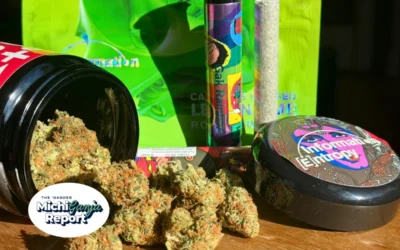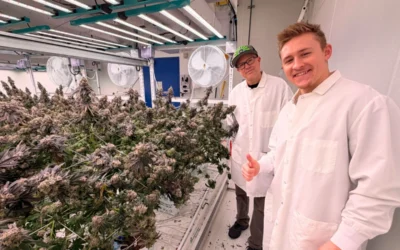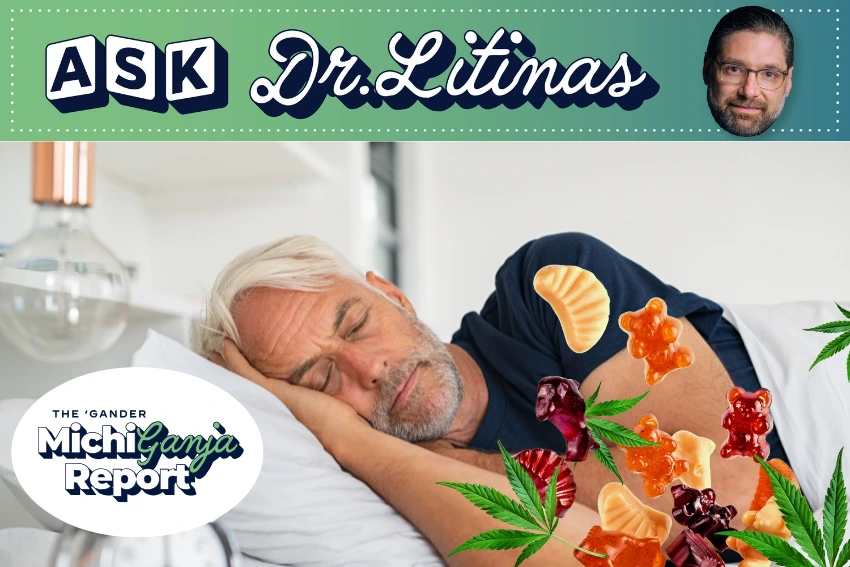
Ask Dr. Litinas is a column that publishes twice monthly as part of The MichiGanja Report—our free, weekly newsletter about all things marijuana. Click here to sign up.
MICHIGAN—Sleep is among the most important pillars of health; yet for many people, it’s also one of the hardest to achieve consistently. And many sleepless Michiganders have asked me whether THC, CBD, or other cannabinoids might be able to help them get a better night’s rest.
The answer is: maybe—but it’s complicated.
How cannabis may help with sleep
Cannabis interacts with the body’s endocannabinoid system, which plays a role in regulating several biochemical systems that control mind-body health and balance. These include systems responsible for sleep, mood, and stress. For some, cannabis can provide meaningful relief:
- Faster sleep onset: THC may reduce the time it takes to fall asleep.
- Deeper sleep: THC can increase the proportion of deep, slow-wave sleep, which is essential for physical recovery.
- Anxiety relief: Moderate nighttime use can ease stress and worry, common contributors to insomnia, especially when using CBD.
- CBN (cannabinol): Early research and anecdotal reports suggest this cannabinoid may have mild sedative properties, especially when paired with THC.
- CBD at higher doses: Some studies suggest CBD may help promote sleep, though results are mixed.
The downsides and risks
Like many things in wellness, the benefits often depend on how much and how often cannabis is used. Chronic or heavy use can lead to unwanted effects, including:
- Disrupted sleep architecture: Long-term THC use reduces REM sleep, the dreaming phase tied to emotional processing and memory.
- Poorer subjective sleep quality: Some studies show daily users report more middle-of-the-night awakenings.
- Tolerance: Relying on cannabis nightly can require higher and higher doses over time, and withdrawal may worsen sleep.
- High doses can backfire: Too much THC may actually worsen anxiety or cause next-day grogginess.
Why timing and dose matter
For those considering cannabis for sleep, timing and dosing can make the difference between rest and restlessness:
- Difficulty falling asleep? Try an edible (such as a gummy) about 1.5–2 hours before your desired bedtime. That way, the peak effect coincides with when you want to drift off.
- Difficulty staying asleep? Take your edible closer to bedtime, so it “kicks in” a few hours later—right when you’d normally wake up in the night.
- Fast relief option: Keep a tincture by the bedside. Because tinctures act more quickly than edibles, a measured dropper can help if you wake up and need to fall back asleep.
Exploring cannabinoid ratios
Not everyone responds the same way to cannabis.
Some find that THC-heavy products help, while others benefit more from balanced ratios of THC, CBD, and CBN and everything in between.
Experimentation—always with caution and consistency—can help people discover what works best for their body. Remember: Always start low and go slow.
Don’t forget sleep hygiene
Even with cannabis, the foundation of good sleep comes from consistent habits.
Practicing good sleep hygiene can make cannabis more effective—or in some cases, reduce the need for it altogether. Simple changes like keeping a regular bedtime, avoiding eating or scrolling on your phone in bed, and creating a dark, quiet sleep environment all play a big role in regulating your body’s natural rhythm.
Talk to your physician
If you’re struggling with insomnia, it’s important to talk with your doctor before starting or adjusting cannabis use.
Sleep problems can sometimes be linked to underlying conditions such as sleep apnea, depression, or thyroid issues—all of which need medical attention. A physician can also help monitor interactions with other medications and guide safe, effective cannabis use as part of a broader treatment plan.
The bottom line
Cannabis holds promise for insomnia, but it’s not a one-size-fits-all solution. Occasional, moderate use may improve sleep in the short term, but chronic or heavy use can potentially disrupt healthy sleep patterns and lead to long-term problems.
What’s clear is that we need more well-designed scientific studies to better understand cannabis and sleep. For now, cannabis may be a helpful tool for some, but it should be approached thoughtfully—with attention to dose, timing, habits, medical guidance, and individual response.
This content is for education, not medical advice. Talk to your doctor before making any health decisions—especially when it comes to cannabis. Products are only for adults ages 21 and up.
READ MORE: Why cannabis deserves a new conversation—and a break from the stigma
Got a question about weed for Dr. Litinas? Send it in here. We’ll get you a response.

Want more cannabis news delivered right to your inbox? Click here to sign up for The MichiGanja Report—our free, weekly newsletter about all things marijuana.

8 Michigan weed picks to upgrade your Valentine’s Day
Not every Valentine’s Day gift needs to come from a jewelry store or flower shop. Your local dispensary might work, too. MICHIGAN—Some cannabis...
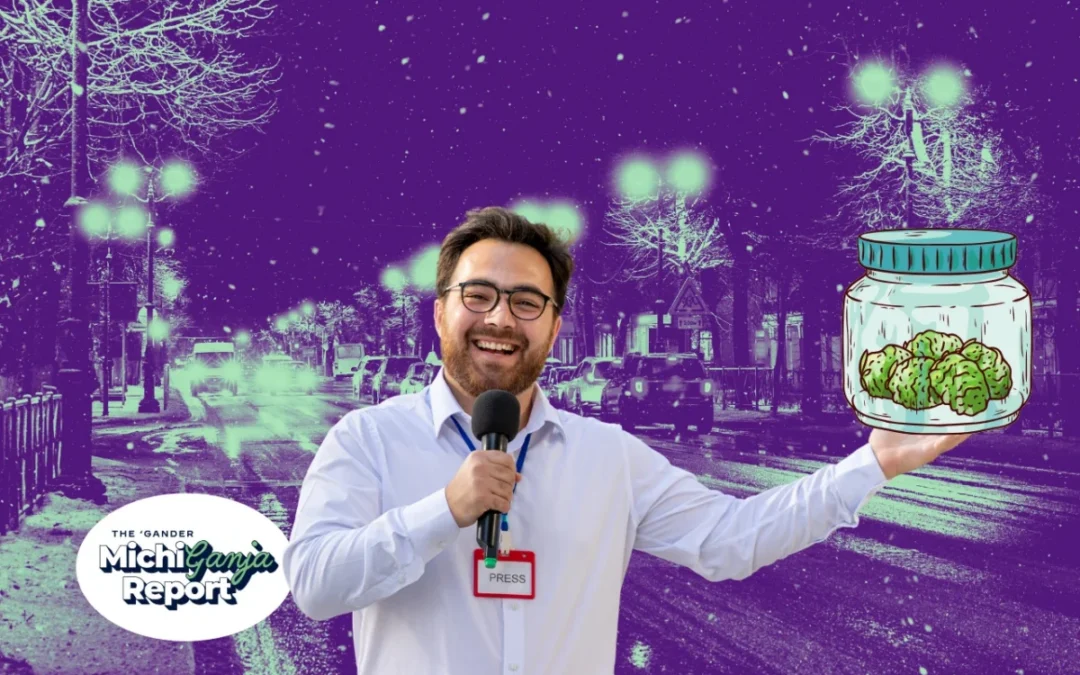
7 quick hits of cannabis news from across Michigan
MICHIGAN—It’s been another busy week for Michigan weed. And as usual, we’re grinding up the headlines, flicking out the seeds and stems, and rolling...
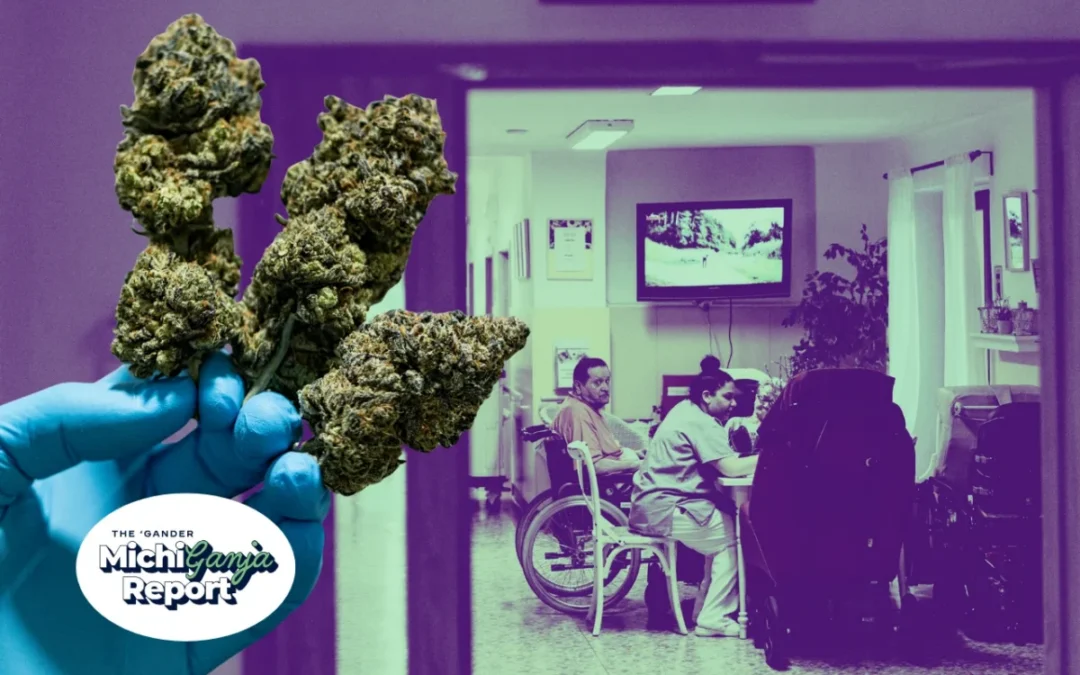
Cannabis can help Michigan patients but it’s not risk-free
Ask Dr. Litinas is a column that publishes twice monthly as part of The MichiGanja Report—our free, weekly newsletter about all things marijuana....
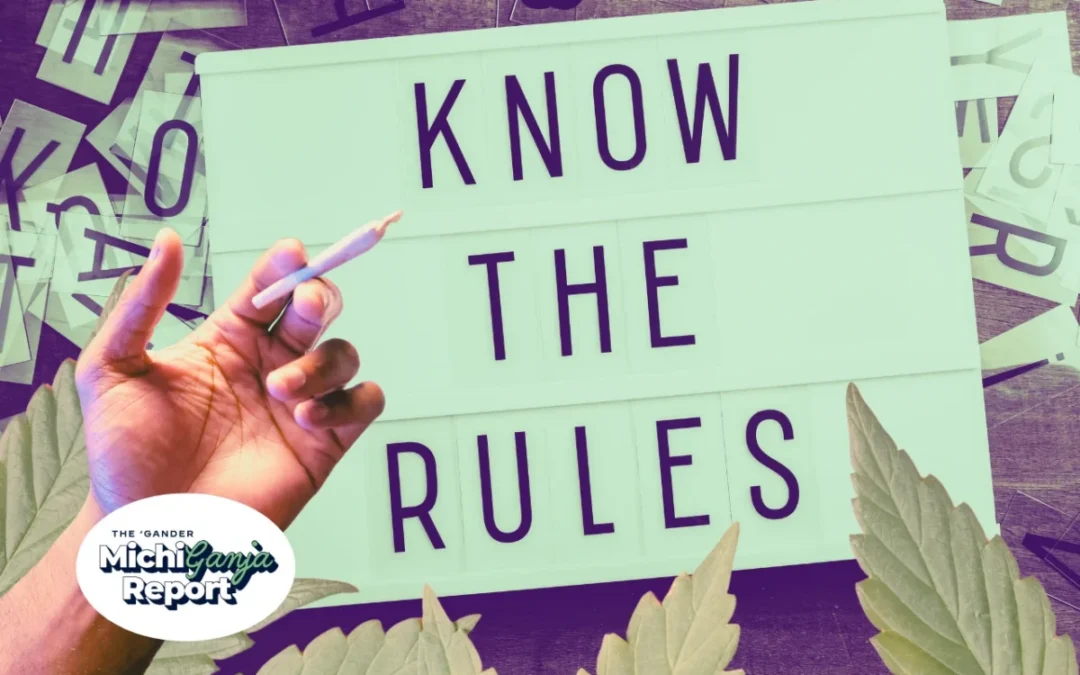
10 unwritten rules of Michigan weed culture (that we finally wrote down)
Nobody voted on these. Nobody enforces them. But if you spend enough time around Michigan stoners, you’ll start to notice everyone playing by the...

6 quick hits of cannabis news from across Michigan
MICHIGAN—From smash-and-grabs and lab testing drama to mayoral politics and border-state busts, it’s been a busy week for Michigan’s weed world....



